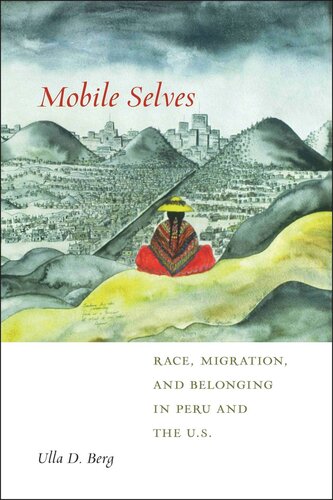

Most ebook files are in PDF format, so you can easily read them using various software such as Foxit Reader or directly on the Google Chrome browser.
Some ebook files are released by publishers in other formats such as .awz, .mobi, .epub, .fb2, etc. You may need to install specific software to read these formats on mobile/PC, such as Calibre.
Please read the tutorial at this link: https://ebookbell.com/faq
We offer FREE conversion to the popular formats you request; however, this may take some time. Therefore, right after payment, please email us, and we will try to provide the service as quickly as possible.
For some exceptional file formats or broken links (if any), please refrain from opening any disputes. Instead, email us first, and we will try to assist within a maximum of 6 hours.
EbookBell Team

4.3
38 reviewsAn explanation of how Peruvian migrants maintain meaningful social relations across borders.
In this engaging volume, Ulla D. Berg examines the conditions under which Peruvians of rural and working-class origins leave the central highlands to migrate to the United States. Migrants often create new portrayals of themselves to overcome the class and racial biases that they had faced in their home country, as well as to control the images they share of themselves with others back home. Migrant videos, for example, which document migrants’ lives for family back home, are often sanitized to avoid causing worry.
By exploring the ways in which migration is mediated between the Peruvian Andes and the United States, this book makes a major contribution to understanding technology’s role in fostering new forms of migrant sociality and subjectivity. It focuses on the forms of sociality and belonging that these mediations enable, adding to important anthropological debates about affect, subjectivity, and sociality in today’s mobile world. It also makes significant contributions to studies of inequality in Latin America, showcasing the intersection of transnational mobility with structures and processes of exclusion in both national and global contexts.
A key resource for understanding the experiences of racialized and indigenous migrant populations, Mobile Selves demonstrates the critical role that ethnography can play in transdisciplinary migration studies and exemplifies what comparative migration studies stand to gain from anthropological analysis and ethnographic methodologies.